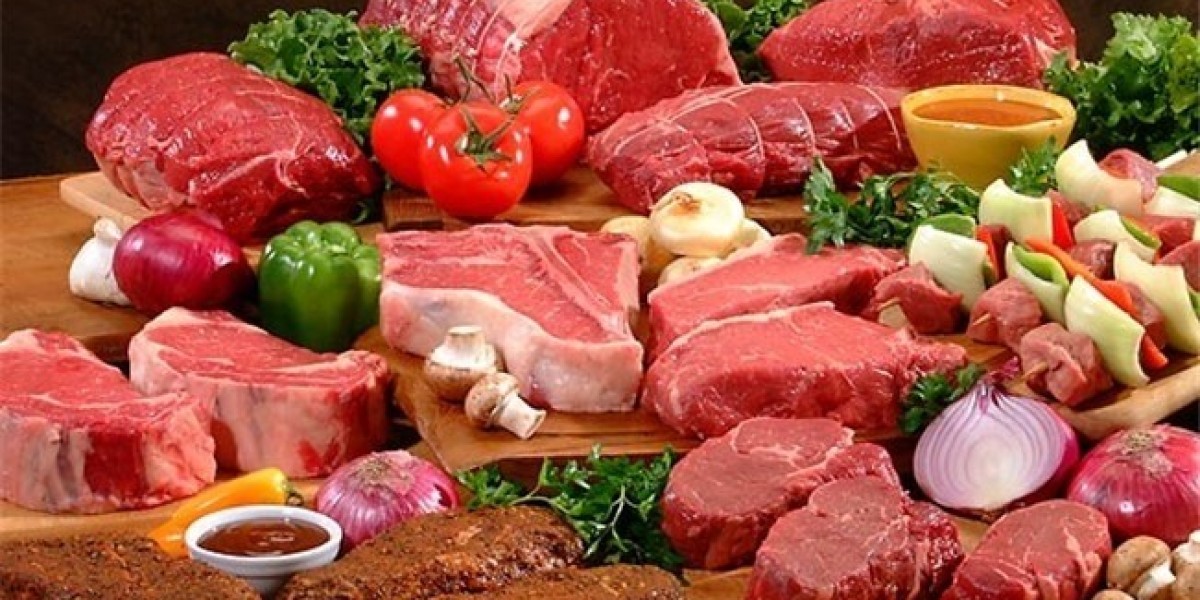Japan, a nation renowned for its rich cultural heritage, technological advancements, and distinctive culinary landscape, has traditionally presented a unique set of challenges for Muslim residents and travelers seeking Halal food options. However, in recent years, a significant shift has been underway, marked by the increasing proliferation of Halal meat store and the broader availability of Halal food across the archipelago. This evolving landscape reflects not only Japan's growing recognition of its diverse population and tourist base but also a proactive effort to embrace the global Halal market.
The Growing Demand for Halal in Japan
The demand for halal food japan is multifaceted. Firstly, the Muslim population within Japan has been steadily increasing, comprising a mix of long-term residents, students, and professionals from various Muslim-majority countries. This demographic shift naturally translates into a greater need for Halal-certified products for daily consumption. Secondly, Japan has witnessed a remarkable surge in Muslim tourism. Countries like Malaysia, Indonesia, and other parts of Southeast Asia, with significant Muslim populations, have become key source markets for inbound tourism to Japan. These visitors seek to experience Japan's beauty and culture without compromising their religious dietary requirements.
Surveys conducted among Muslim visitors to Japan consistently highlight food concerns as a primary worry. The desire to enjoy authentic Japanese cuisine while adhering to Halal principles has fueled the demand for readily available and clearly identifiable Halal options. This has prompted both the private sector and government initiatives to address these needs, recognizing the economic potential of catering to this growing segment.
The Emergence of Halal Meat Stores
At the forefront of this burgeoning Halal landscape are the dedicated Halal meat stores. These establishments play a crucial role, serving as vital hubs for Muslim communities and offering a sense of assurance and convenience. Unlike regular supermarkets where identifying Halal meat can be a complex and often impossible task due to cross-contamination risks and non-Halal processing, Halal meat stores provide a controlled environment where consumers can trust the integrity of the products.
These stores typically offer a wide range of Halal-certified meats, including beef, chicken, lamb, and sometimes even specialized cuts. They often source their meat from certified Halal slaughterhouses, either domestically within Japan or from reputable international suppliers. Examples like Miyuki Halal Store, Al Modina Japan, JB Halal Food, and Gunma Halal Food demonstrate the increasing presence of such dedicated outlets, often operating both physical stores and convenient online delivery services. This online presence is particularly beneficial for Muslims residing in areas with fewer physical Halal stores, ensuring nationwide access to essential Halal ingredients.
Beyond just meat, many Halal meat stores have evolved into comprehensive grocery stores, stocking a diverse array of imported Halal products such as spices, ready-mix masalas, rice, beans, snacks, and even certain Halal-certified Japanese condiments like miso. This caters to the broader culinary needs of Muslim households who often seek familiar ingredients to prepare their traditional dishes or to create Halal versions of Japanese meals at home.
Halal Food Beyond the Store: Restaurants and Certification
The impact of the growing Halal market extends far beyond dedicated meat stores. Japan's restaurant industry is increasingly recognizing the importance of catering to Muslim diners. Major cities like Tokyo, Osaka, and Kyoto, being primary tourist destinations, have seen a notable rise in Halal-certified or Muslim-friendly restaurants. These establishments range from those offering traditional Japanese cuisine, like Halal Wagyu Yakiniku and Halal Sukiyaki, to international options like Indian, Malaysian, and Middle Eastern eateries.
However, the journey to becoming Halal in Japan isn't without its complexities. Businesses often navigate a spectrum of certifications and self-declarations. Some restaurants achieve full Halal certification from recognized bodies like the Japan Halal Association, ensuring strict adherence to Halal principles in sourcing, preparation, and serving. Others adopt a Muslim-friendly approach, which might involve offering pork-free and alcohol-free menus, but without a full Halal certification of the premises or kitchenware, leaving some Muslims to exercise their own discretion. Transparency regarding these distinctions is crucial for consumers.
Initiatives like Halal Gourmet Japan and Halal Navi applications have emerged as invaluable tools for Muslim residents and tourists. These platforms provide comprehensive databases of Halal restaurants and grocery stores, often including details about certification status, ingredients used, and even prayer facilities. This technological assistance significantly reduces the burden of finding suitable dining options and empowers consumers to make informed choices.
Challenges and Opportunities
Despite the positive trajectory, the Halal market in Japan still faces certain challenges. One significant hurdle is the often complex and costly process of obtaining Halal certification. For smaller businesses, the financial investment and rigorous auditing requirements can be prohibitive. This can lead to a dualism where a strong desire to cater to the Muslim market exists, but the formal certification process remains a barrier.
Another challenge is the general lack of awareness among the wider Japanese population regarding Halal concepts. Misconceptions that Halal food is exclusively for Muslims or is somehow different from mainstream food can limit its broader adoption. Education and clear communication are essential to dispel these notions and highlight the benefits of Halal, such as its emphasis on hygiene, ethical sourcing, and quality, which resonate with a health-conscious and discerning Japanese consumer base.
The availability of Halal-certified ingredients, particularly in rural areas, can also be limited. While online stores offer a solution, the convenience of local access remains important. Strengthening supply chains for Halal products within Japan will be crucial for the continued growth of the market.






